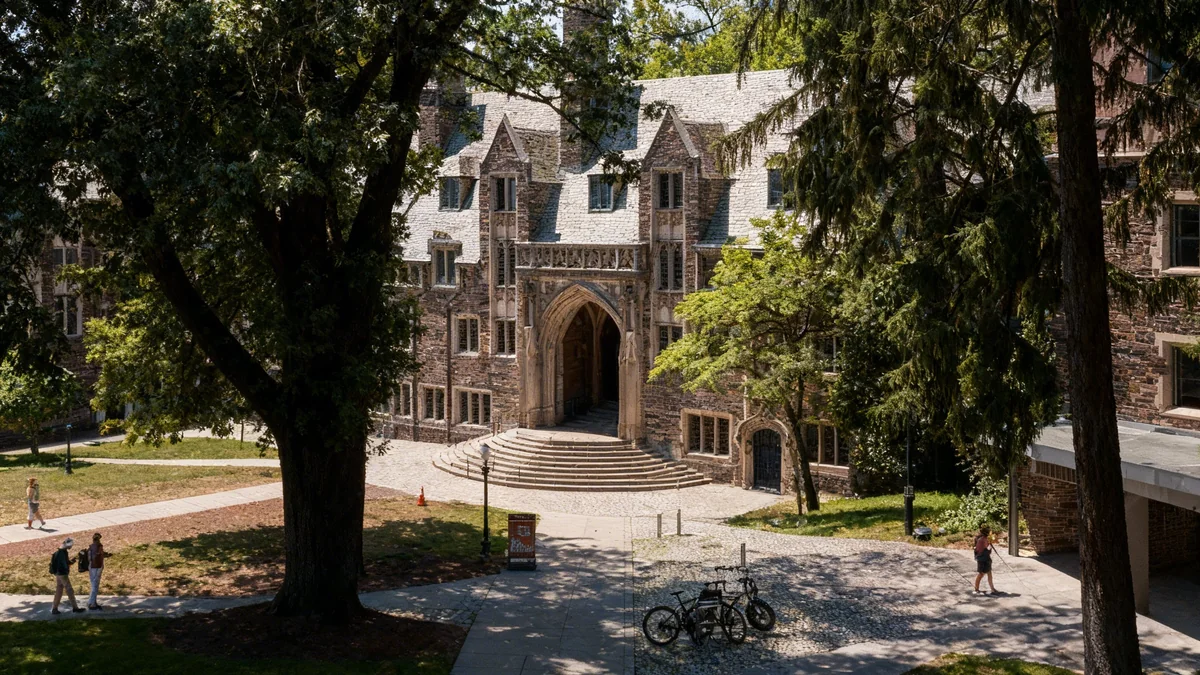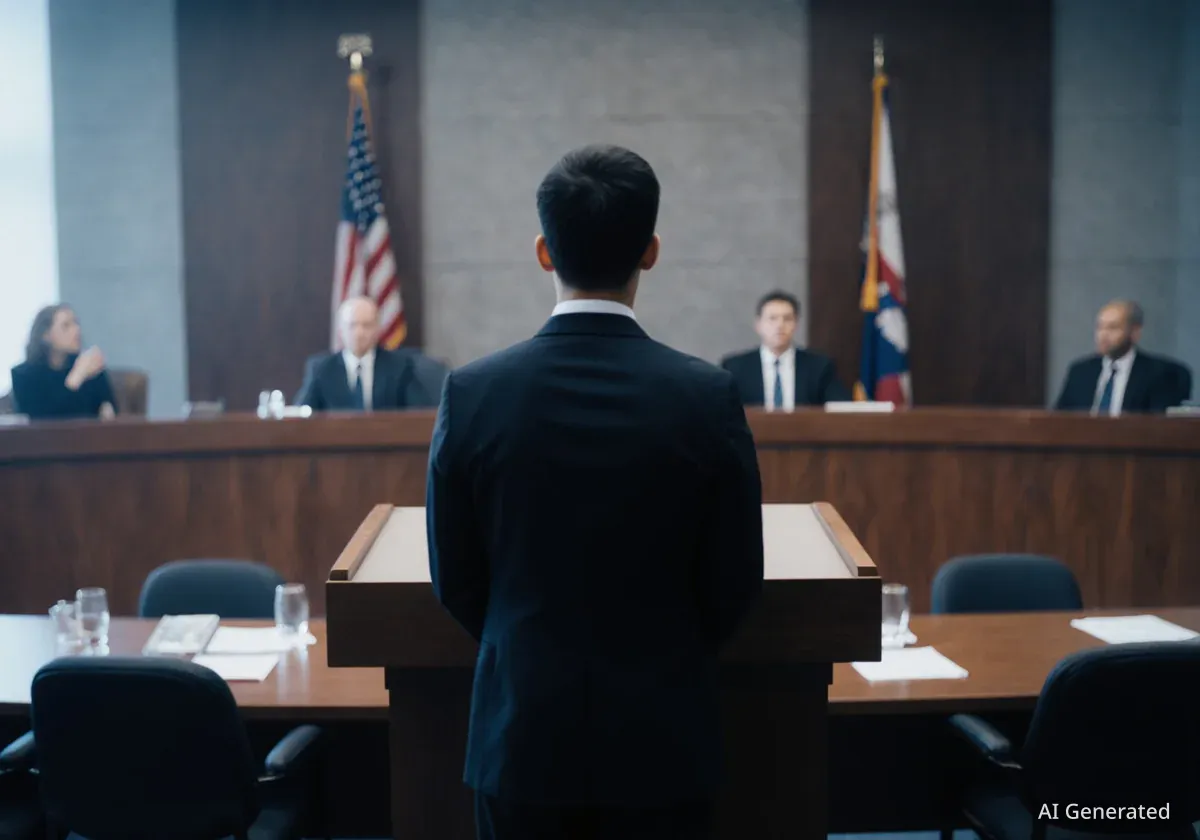The U.S. Department of Justice has asked a judge to deny a motion from Portland Public Schools, which is attempting to intervene in a legal case involving a federal subpoena for student-athlete records. The dispute is part of a broader federal inquiry into policies regarding transgender student participation in school sports.
Key Takeaways
- The Department of Justice (DOJ) subpoenaed the Maine Principals' Association (MPA) for the personal records of all student-athletes in the state.
- The subpoena is connected to a federal investigation concerning the participation of transgender athletes in women's sports.
- Portland Public Schools filed a motion to intervene, citing its duty to protect confidential student information.
- The DOJ argues that the school district lacks the legal standing to be involved in the case and should not be allowed to block the subpoena.
Federal Subpoena Sparks Privacy Concerns
The legal conflict began earlier this year when the Department of Justice issued a subpoena to the Maine Principals' Association. The MPA is a professional organization that oversees interscholastic activities, including high school sports, for public and private schools across Maine.
The federal subpoena demanded comprehensive information, including personal data and team rosters for every student-athlete in the state. This request is part of a larger federal effort to investigate and potentially restrict the participation of transgender students in sports programs designated for women and girls.
In response to the demand, the Maine Principals' Association refused to turn over the requested student records. The organization's refusal set the stage for a legal confrontation over student privacy and federal authority.
Understanding the Broader Context
This legal action in Maine is not an isolated event. It reflects a nationwide debate over the rights of transgender athletes. Federal and state governments have been examining and, in some cases, enacting policies that define eligibility for school sports based on sex assigned at birth. These actions often lead to legal challenges from civil rights groups and educational institutions.
Portland School District Enters the Fray
Following the MPA's refusal to comply with the subpoena, Portland Public Schools took formal legal action. The district filed a motion to intervene in the case, arguing that it has a direct and significant interest in the matter.
The school district's primary argument is its legal and ethical obligation to protect the confidential records of its students. School systems are entrusted with sensitive student information and are often bound by federal laws like the Family Educational Rights and Privacy Act (FERPA), which governs the disclosure of student records.
Protecting Student Confidentiality
In its court filing, Portland Public Schools asserted that its interest in safeguarding student privacy was directly threatened by the subpoena served to the MPA. The district contends that it is the original custodian of the student data and has a responsibility to prevent its disclosure without proper legal justification.
The motion to intervene is a legal procedure that allows a party not originally named in a lawsuit to join the case. To be successful, the intervening party must demonstrate that it has a substantial interest that could be impaired if it is not allowed to participate.
What is a Motion to Intervene?
A motion to intervene allows a third party to join an existing lawsuit. The party must prove it has a direct interest in the case's outcome. In this instance, Portland Public Schools argues that its duty to protect student data gives it a right to be involved in the dispute between the DOJ and the MPA.
Justice Department Challenges School District's Standing
The Department of Justice has now responded with its own legal filing, asking the court to reject the Portland school district's attempt to join the case. The federal government's main argument is that Portland Public Schools lacks legal standing.
Legal standing is a fundamental requirement in U.S. law that determines whether a party is entitled to have a court decide the merits of a dispute. To have standing, a party must show it has suffered a concrete and particularized injury.
The DOJ claims that since the subpoena was directed at the Maine Principals' Association, not the school district itself, Portland Public Schools has no legal basis to challenge it. The government views the dispute as being solely between the DOJ and the MPA.
The Argument Over Shared Data
A key part of the Justice Department's argument centers on the fact that the school district had already provided the student information to the MPA. According to the DOJ, because the district voluntarily submitted rosters and other data to the association for athletic administration, it has effectively waived its right to control that information in this context.
The government's position is that if the school district willingly shared the records with a third party (the MPA), it cannot now claim that a subpoena to that third party harms the district's interest in confidentiality.
This argument seeks to position the school district as a disconnected entity with no direct stake in the current legal proceeding. The DOJ is essentially telling the court that the district's concerns are irrelevant to the enforcement of a subpoena served on a separate organization.
Implications for Student Privacy and School Autonomy
The outcome of this legal skirmish could have significant implications for schools across Maine and potentially nationwide. If the court sides with the Department of Justice, it could set a precedent that limits a school district's ability to protect student data once it has been shared with state-level administrative bodies like the MPA.
Conversely, if the court allows Portland Public Schools to intervene, it would affirm the district's role as a primary guardian of student privacy. Such a ruling would support the idea that schools retain an interest in protecting their students' information even after it is shared for administrative purposes.
The case continues to unfold in Portland, Maine, as both sides await a judge's ruling on whether the school district will be allowed to formally participate in the legal battle over student-athlete records.





